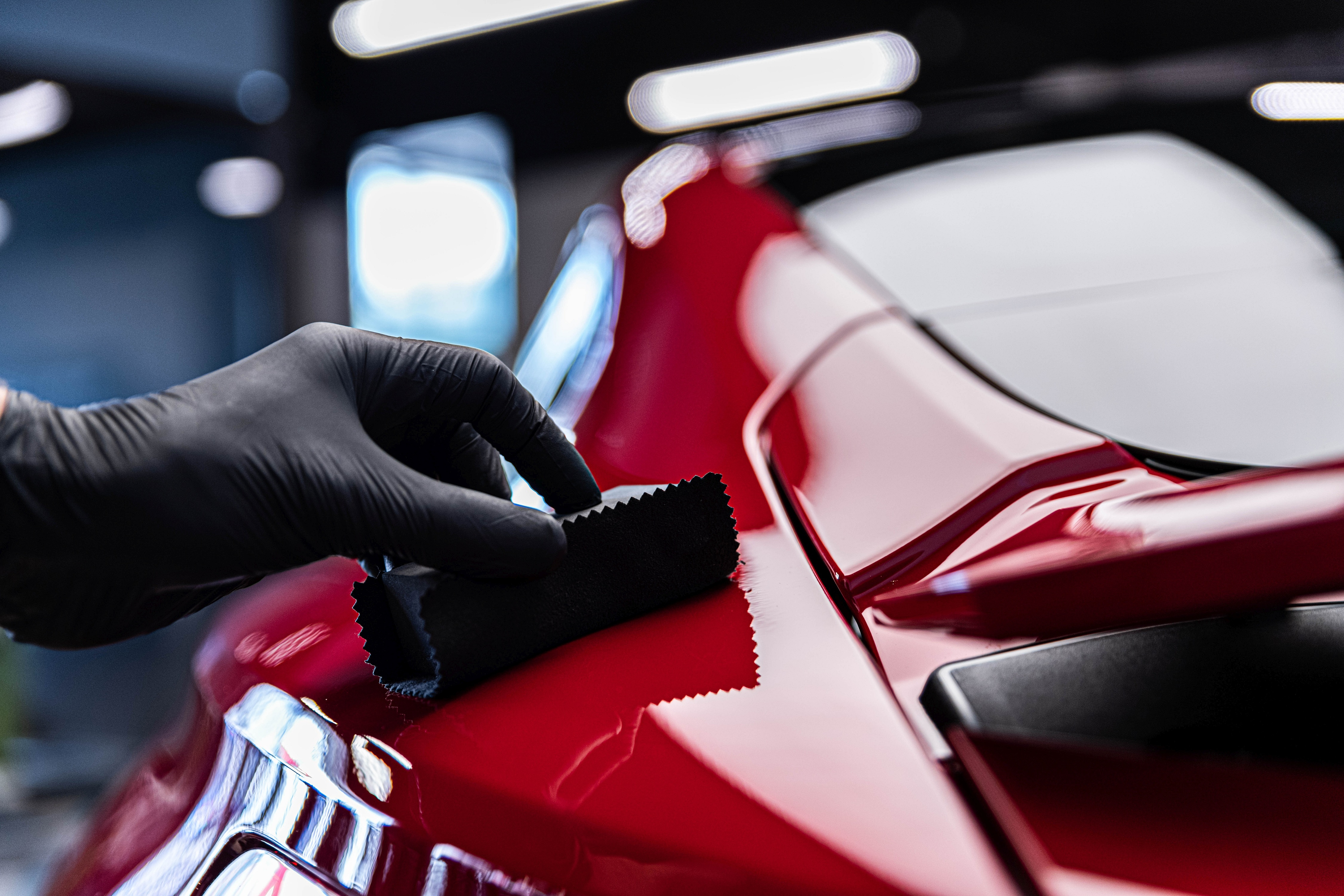A Comprehensive Guide to the Kinds Of Ceramic Finishing on the Market
Ceramic coverings have arised as a crucial solution across different sectors due to their unique residential or commercial properties and applications. As we check out the distinct characteristics and applications of these finishings, the effects for performance and durability end up being significantly noticeable, raising questions regarding which kind may ideal suit your requirements.
Recognizing Ceramic Coatings
Ceramic finishings are sophisticated protective options that have actually gotten appeal in different industries, particularly in vehicle and aerospace applications. These finishings include a liquid polymer that, when treated, develops a sturdy, hydrophobic layer externally of the substrate. This layer gives boosted resistance to environmental impurities, UV radiation, and chemical exposure, thus prolonging the life and visual allure of the underlying product.
The fundamental part of ceramic coverings is silica, which contributes to their firmness and resilience. The application procedure normally entails surface preparation, application of the finish, and treating, which can be attained through warm or UV light. When healed, ceramic finishes exhibit exceptional bonding properties, permitting them to adhere highly to a selection of surfaces, consisting of steels, plastics, and glass.
Along with their protective features, ceramic coverings also supply simplicity of maintenance. Their hydrophobic nature minimizes the adherence of dirt and grime, making cleansing easier and much less regular. In general, the fostering of ceramic finishings stands for a considerable advancement in surface area defense innovation, providing both useful and aesthetic benefits throughout several fields.
Sorts Of Ceramic Coatings
Numerous sorts of ceramic finishes are available, each created to meet details performance needs and applications - Paint Protection Film. The most usual types consist of:
Silica-based Coatings: These coverings mostly contain silicon dioxide and are understood for their resilience and chemical resistance. They are extensively made use of in vehicle and commercial applications.
Titanium Dioxide Coatings: Popular for their photocatalytic buildings, titanium dioxide finishes are often applied in atmospheres where self-cleaning and antifungal residential properties are desirable, such as in building materials and auto coatings.
Zirconia Coatings: Identified by their high-temperature security and thermal resistance, zirconia finishings are utilized in applications such as turbine engines and high-performance auto parts.
Alumina Coatings: Displaying outstanding hardness and thermal security, alumina finishes are often utilized in wear-resistant applications, including reducing devices and commercial machinery. - scratch repair sarasota
Hybrid Coatings: Combining the buildings of numerous products, crossbreed coatings provide enhanced efficiency features, making them appropriate for distinct and demanding applications.
Each sort of ceramic layer offers unique purposes, allowing customers to choose the most suitable remedy based on specific ecological problems and efficiency requirements.
Benefits of Ceramic Coatings
Ceramic layers, in specific, deal various advantages that make them significantly popular amongst suppliers and consumers alike. These coatings are resistant to scratches, chemicals, and UV rays, making sure that the underlying surface stays secured over time.
Along with durability, ceramic finishes offer exceptional hydrophobic buildings, permitting for easy cleansing and upkeep. This water-repellent nature minimizes the adherence of dirt, grime, and various other impurities, which can prolong the visual appeal and performance of the surface. Ceramic coverings can considerably enhance thermal resistance, making them click here for more info ideal for applications that endure high temperatures.

Application Refine
When using ceramic coatings, a meticulous method is vital to accomplish ideal outcomes. The application process typically starts with detailed surface area preparation. This involves washing, sanitizing, and brightening the surface area to remove all pollutants, including dust, oil, and prior waxes or sealants. A tidy surface makes sure proper bond of the coating.
Once the surface area is prepped, the following action is to apply the ceramic finishing. This can be done using an applicator pad or a microfiber towel, guaranteeing even coverage. It is important to operate in tiny sections to keep control and protect against premature healing. The coating should be used in slim layers, as thicker applications can lead to unequal coatings.
After application, the layer needs a details curing time, normally varying from a couple of hours to a full day, depending on the product. Following these steps carefully will take full advantage of the performance and longevity of the ceramic coating, giving a sturdy protective layer for the surface.
Upkeep and Longevity
To ensure the long life and efficiency of a ceramic finishing, regular upkeep is vital. Ceramic finishings, known for their sturdiness and protective qualities, need certain treatment regimens to maximize their life expectancy and performance. The very first step in upkeep includes routine cleaning with pH-neutral soap, staying clear of harsh chemicals that can weaken the covering. It is a good idea to clean the lorry routinely, preferably every two weeks, to stop the build-up of contaminants that might endanger the layer's integrity.
In enhancement to regular washing, periodic examinations are important. Search for indications of wear or damages, such as hydrophobic properties lessening or surface area imperfections. If essential, a light polish might be applied to invigorate the layer without removing it away.
Furthermore, the application of a booster spray can boost the covering's hydrophobic impacts and restore its gloss. This is particularly valuable for finishes that have actually remained in use for an extended period. Ultimately, continue reading this by adhering to these maintenance techniques, one can significantly extend the life of a ceramic finishing, guaranteeing that it continues to offer ideal security against environmental factors and keep the visual allure of the automobile.
Conclusion
